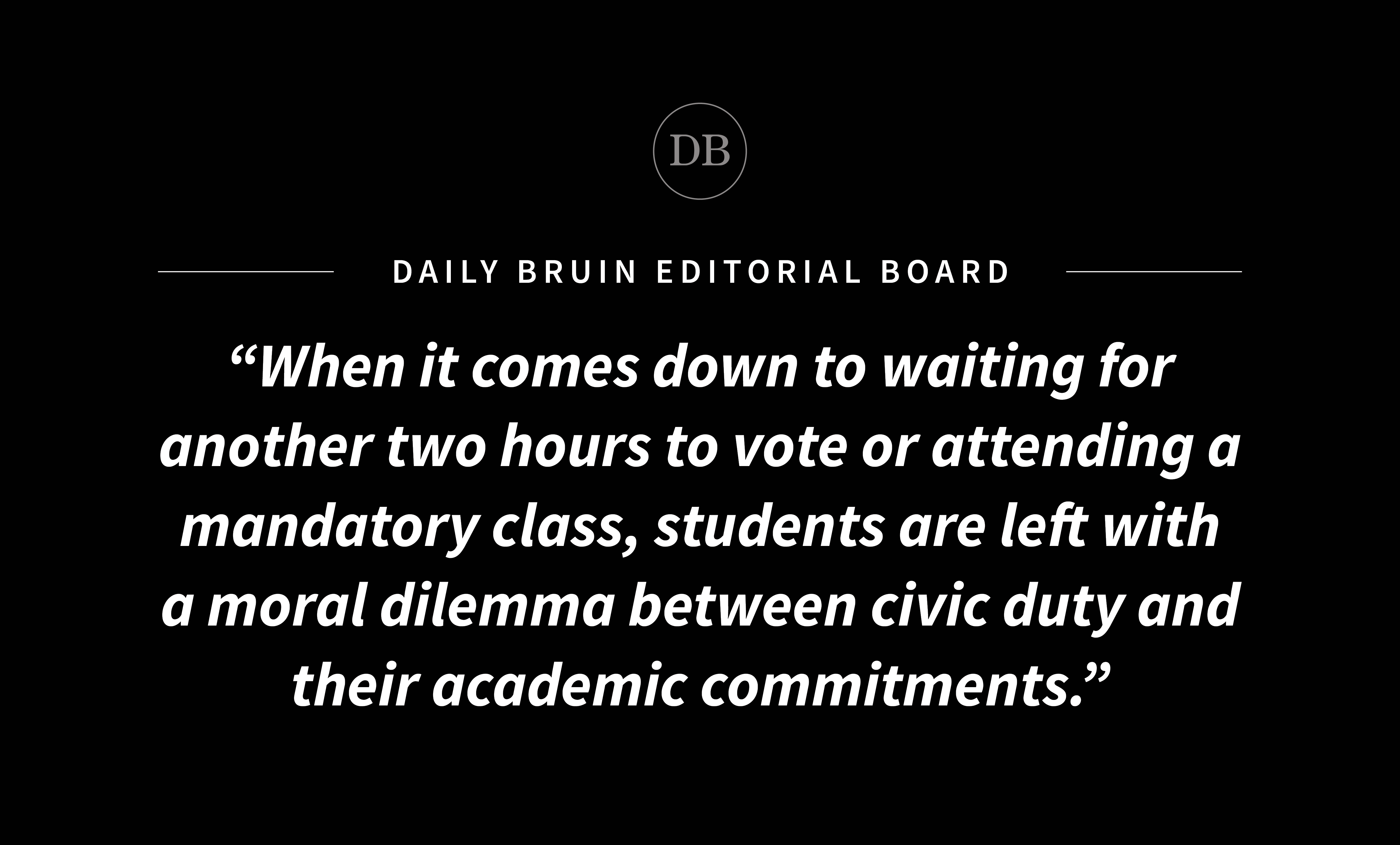Editorial: Long wait times on Super Tuesday inconvenience student voters

By Editorial Board
March 8, 2020 9:20 p.m.
The choice to exercise civic duty shouldn’t be a painful one.
But between four hour wait times, crashing voting machines and the impending pressure of work and classes, voting became a chore rather than a privilege for many Bruins.
On Super Tuesday, March 3, many students waited in line for more than four hours to vote in Ackerman Union. The closest alternatives, the Hammer Museum and Warner Avenue Elementary School, both posed multiple-hour wait times throughout the day.
Pizza, snacks and even “The Princess Diaries” actress Heather Matarazzo were there to keep spirits high. But when it comes to the historically atrophied youth vote, engagement shouldn’t be so discouraging – especially given the high stakes of the 2020 California Democratic primary contest.
And UCLA didn’t do much to help where it could have.
Most students don’t have four hours to spare in the middle of week nine. While some sacrificed their class attendance in order to vote, many ended up casting provisional ballots – or not voting at all – to avoid missing valuable participation points in class.
The university shouldn’t stick students between civic engagement and academia, especially considering the size of the youth voter base that exists on campus. Considering that voting is such a time commitment, professors at UCLA could facilitate students’ choices to vote by excusing classes or making attendance optional on election days. Super Tuesday is a regional holiday, but going to class for students is a job they can’t always afford to miss in the weeks before finals.
When it comes down to waiting for another two hours to vote or attending a mandatory class, students are left with a moral dilemma between civic duty and their academic commitments.
Despite the common perception that campuses are a hotspot for political activism and participation, college students historically have the lowest voter turnout rates compared to any other age group. But this is starting to change – between the 2014 and 2018 midterm elections, the rate of eligible college voters casting their ballot skyrocketed from 19% to 40%.
Voter turnout is never going to reach 100% so long as the privilege of voting is intertwined with the consequences of losing valuable time. It’s a systemic problem, and it is in no way contained to students – voting barriers, such as reduced voting hours and voter ID requirements, disproportionately affect low-income and minority individuals.
And for the 70% of full-time students who are also working, voting can understandably become a secondhand responsibility.
Granted, UCLA has provided some options. Mail-in ballots are always available to reduce wait times, and some voting centers were open for more than a week leading up to Super Tuesday. These alternatives allowed students to proactively vote and could have mitigated miserable waiting times Tuesday – but it seems that students remained unaware or chose to procrastinate.
Regardless of the inclination to wait until the very last minute, professors and offices at UCLA can still remove the burden of required classroom attendance that forces voters out of line and into their seats.
Students are starting to realize the power of their vote and use it.
But it’s a choice they might not always have the time to make.


